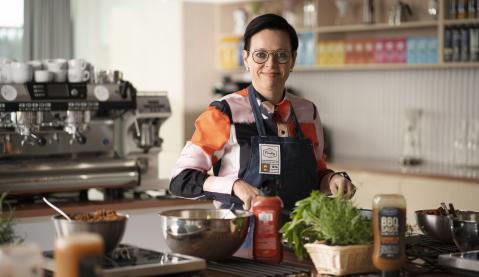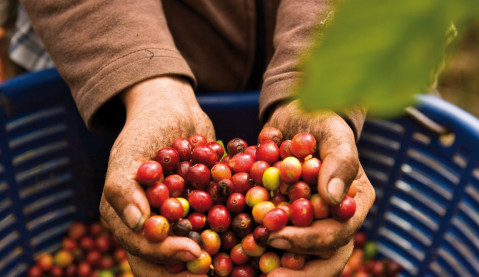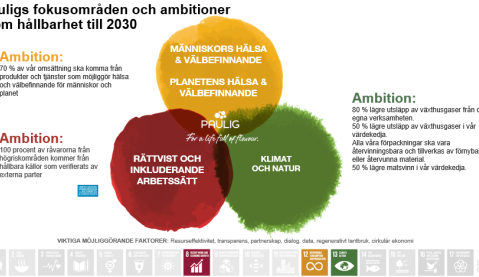Through our Ethical Principles, we are committed to respecting the United Nations’ Universal Declaration of Human Rights in all our operations. At Paulig, we always comply with the applicable laws, regulations and norms in the countries where we operate. We conduct our operations with integrity, ethically and are accountable for our actions. Our Ethical Principles also define our will to promote ethical behaviour beyond the laws and regulations.
We also respect other international agreements such as the ILO Declaration on Fundamental Principles and Rights at Work and the OECD Guidelines for Multinational Enterprises.
The responsibility for our sustainable development work is with the Group Leadership Team where the sustainability work is led by the SVP, Communications & Sustainability. The Group’s CEO and Board review and approve the policies and key projects and objectives related to sustainable development.
Managing human rights at Paulig
A significant share of our raw materials comes from countries that are classified as risk countries by amfori BSCI (Business Social Compliance Initiative). In these countries, problems related to human and employee rights are prevalent. The common sustainability risks in the food sector are related to human rights such as forced or child labour, and labour rights such as fair remuneration and working hours. Our long-term relationships with suppliers help us to understand the human rights risks and other sustainability issues in our supply chains better. In addition, climate change, loss of biodiversity and water stress as well as the usage of pesticides cause risks to the environment and people in these areas.
We apply a diligent process when assessing our suppliers. We evaluate the sustainability risks related to suppliers through country risk assessments, supplier self-assessments and audits. We always conduct a supplier risk assessment before starting collaboration with a new supplier and evaluate existing suppliers on regular intervals.
The Paulig Code of Conduct for Suppliers stipulates the minimum requirements suppliers must abide by, such as safe and decent working conditions as well as respecting the human rights and environmental risks related to their own operations and supply chains. We also set a clear request for traceability regarding both manufacturing and origin of raw materials when using sub-suppliers in connection with a delivery to Paulig. We audit our direct high-risk suppliers regularly and we use a combination of audits performed by our own employees and third-party auditors.
In the event that any human rights violations are detected in our supply chain, we take immediate action. We examine any emerging problems thoroughly and if necessary, take corrective action in cooperation with our partners and other interest groups. If no solution can be found or the partner in question is unwilling to develop their operations, we will reassess the partnership and discontinue it altogether if necessary.
Read more on how we manage sustainability: https://www.pauliggroup.com/sustainability/managing-sustainability
Improving human rights through partnerships and collaboration
All our coffee is from verified sustainable sources and we aim to extend this work to cover also other raw materials. Paulig has set a goal to have all raw materials from high-risk areas externally verified sustainable by 2030. To reach our sustainability targets, we seek for active collaboration with different partners and stakeholders.
In April 2020, we became an amfori member, which enables us to influence global decision-making, effectively promote well-being throughout the supply chain, scale external verifications in our supply chain and collaborate with others.
We want to be an active player in our countries of origin to secure a fair and inclusive way of working. We investigate the root causes of potential human rights issues and support the local community in fixing them.
We are a member of Sustainable Spices Initiative, which aims to sustainably transform the mainstream spices sector, thereby securing future sourcing and stimulating economic growth in producing countries. In India, we have collaborated with the Save the Children organisation since 2004 to support children’s rights. During these years, we have, for instance, initiated a study on children’s rights in the supply chain of our major spices in India. As a result, a project was kicked off to enable schooling for hundreds of children.
One of our most important partnerships is with International Coffee Partners GMBH (ICP), which is a non-profit collaborative company founded by five European, family-owned coffee industry companies. ICP furthers sustainable development in coffee-producing countries by realising projects which benefit coffee farmer families and the environment.
We value every person as they are
In Paulig, we value every person as an individual and a professional and expect the same from our suppliers and partners. The driving principles of our management and remuneration are equity and justice and we do not accept discrimination of any kind.
We also want our employees to feel comfortable with voicing dissenting opinions and concerns at the workplace. We promote equality through development and career planning so that women and men of different ages are on an equal footing in different groups of staff. We treat people who have reduced capacity to work equally with other candidates and employees.
Our internal whistle blower channel serves as a tool to raise possible concerns on any unethical behaviour observed or suspected in our operations. All the possible misconduct is evaluated and investigated, and the cases are handled by Paulig’s whistleblowing team.


